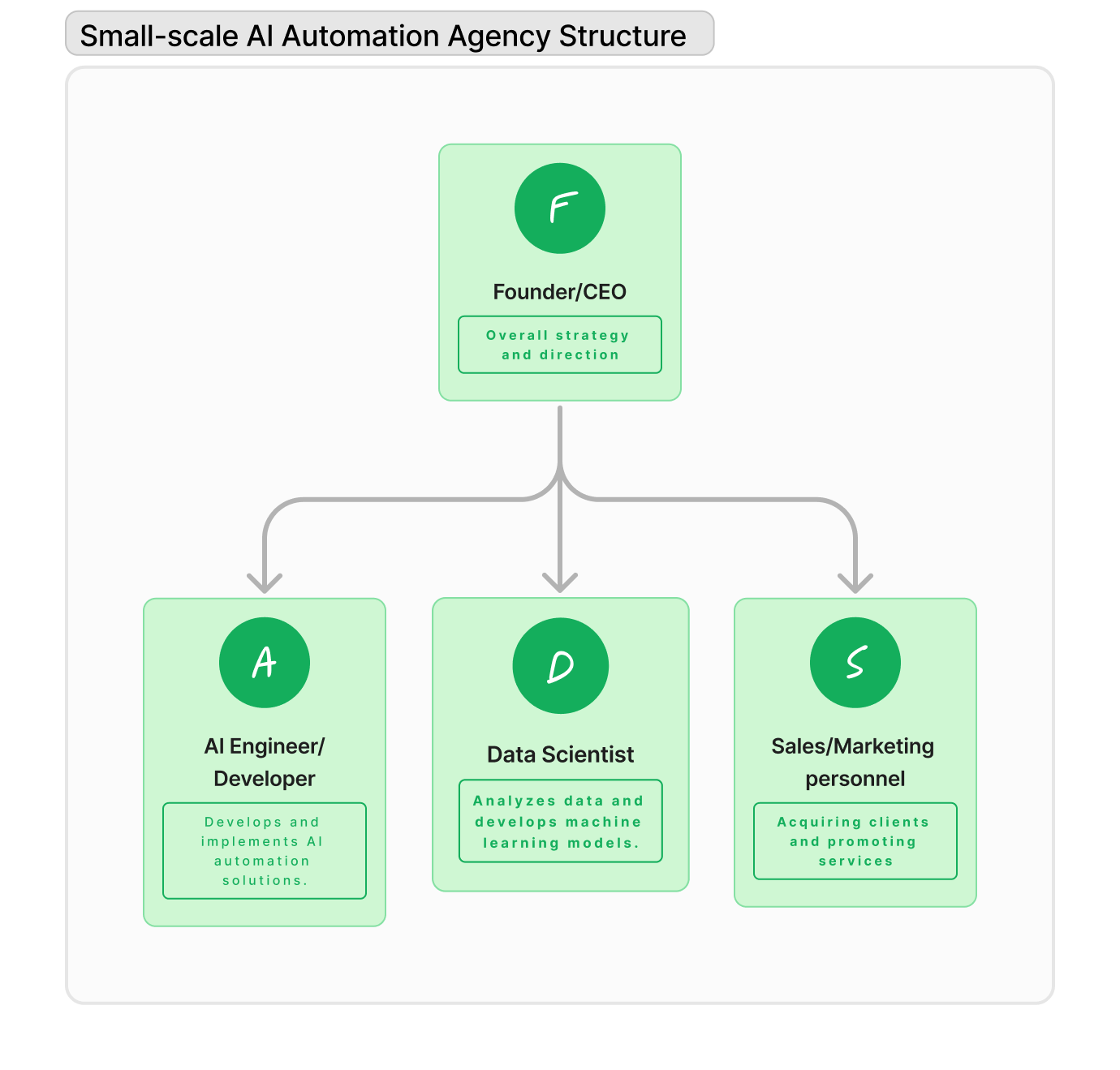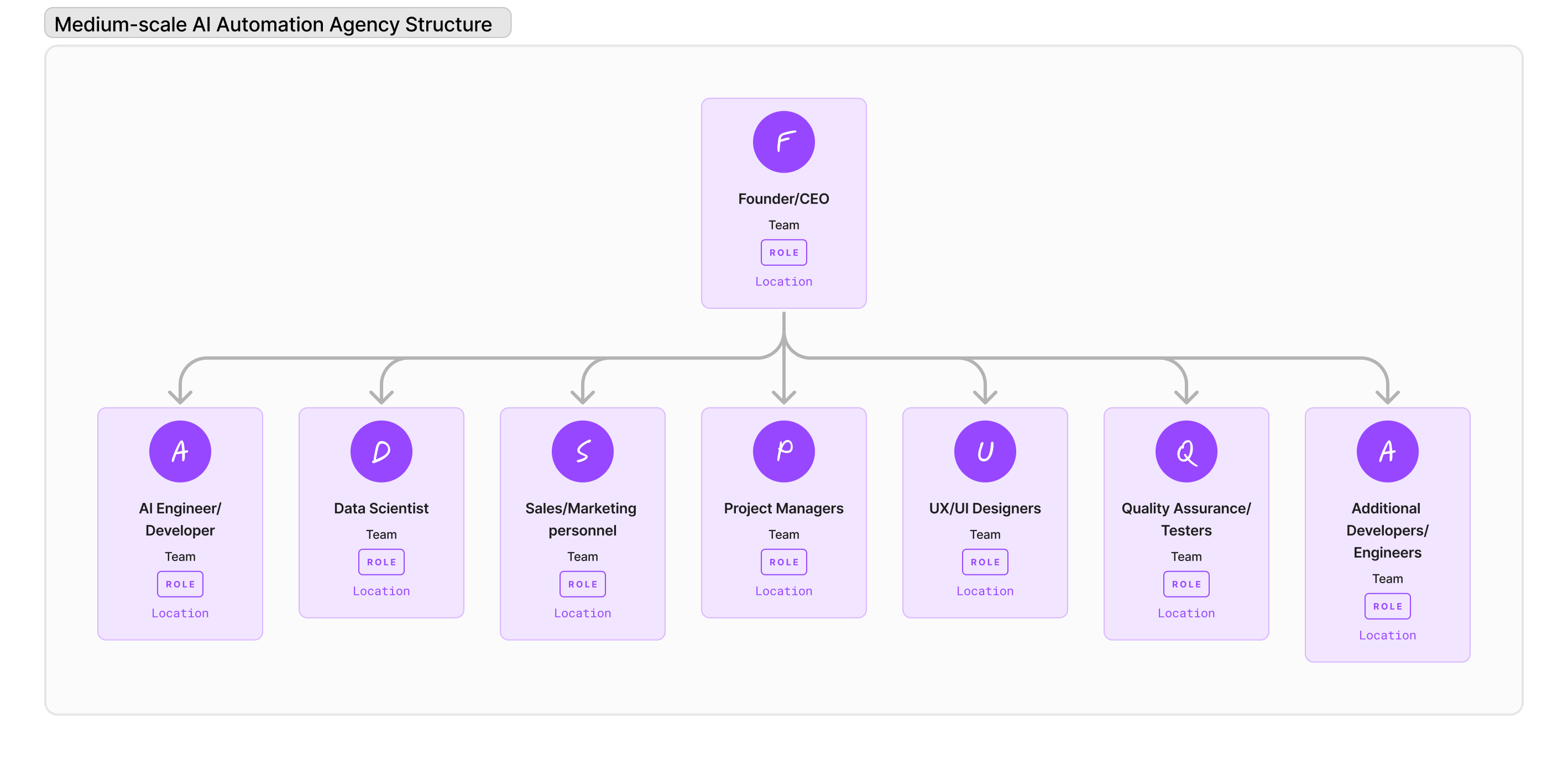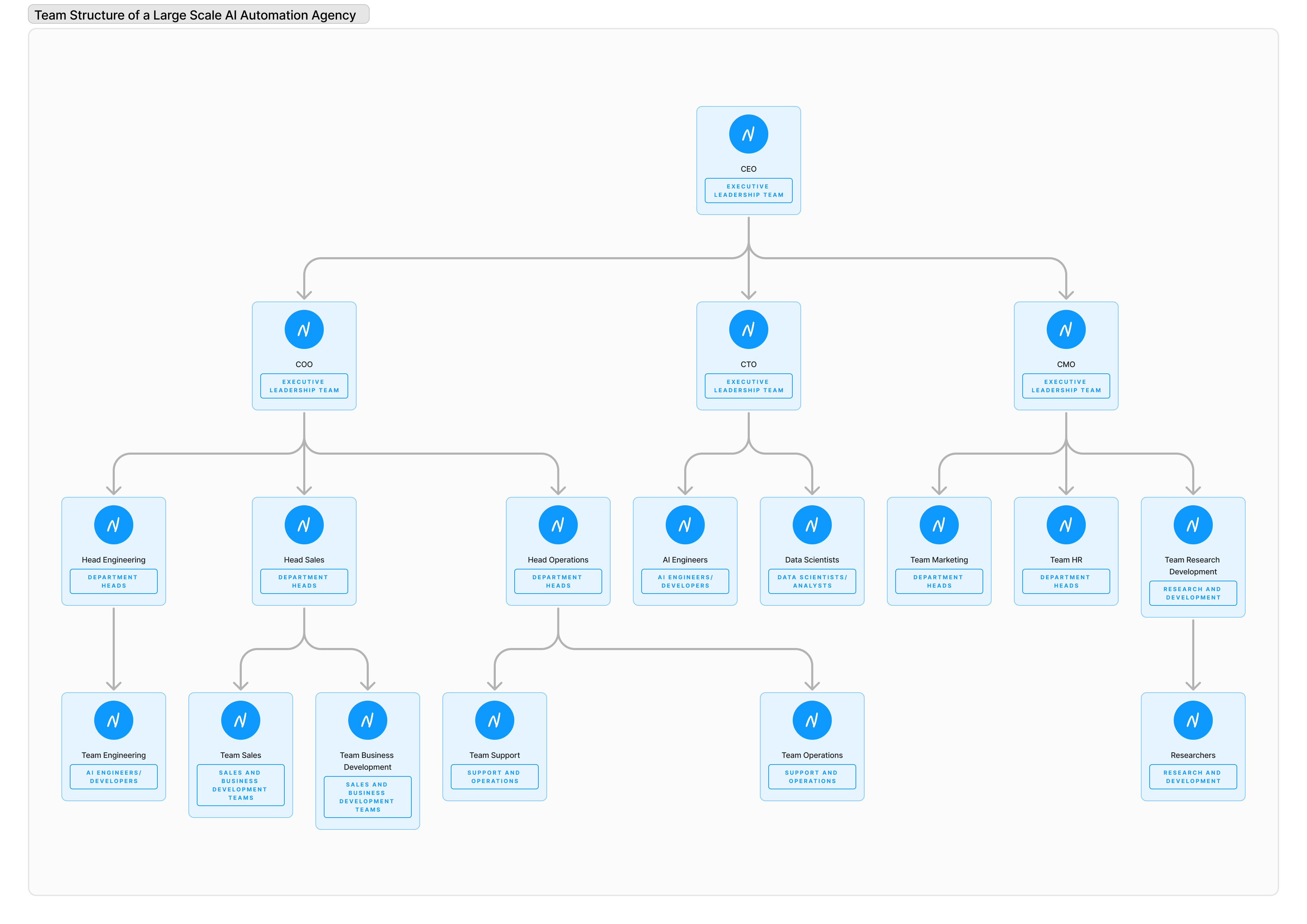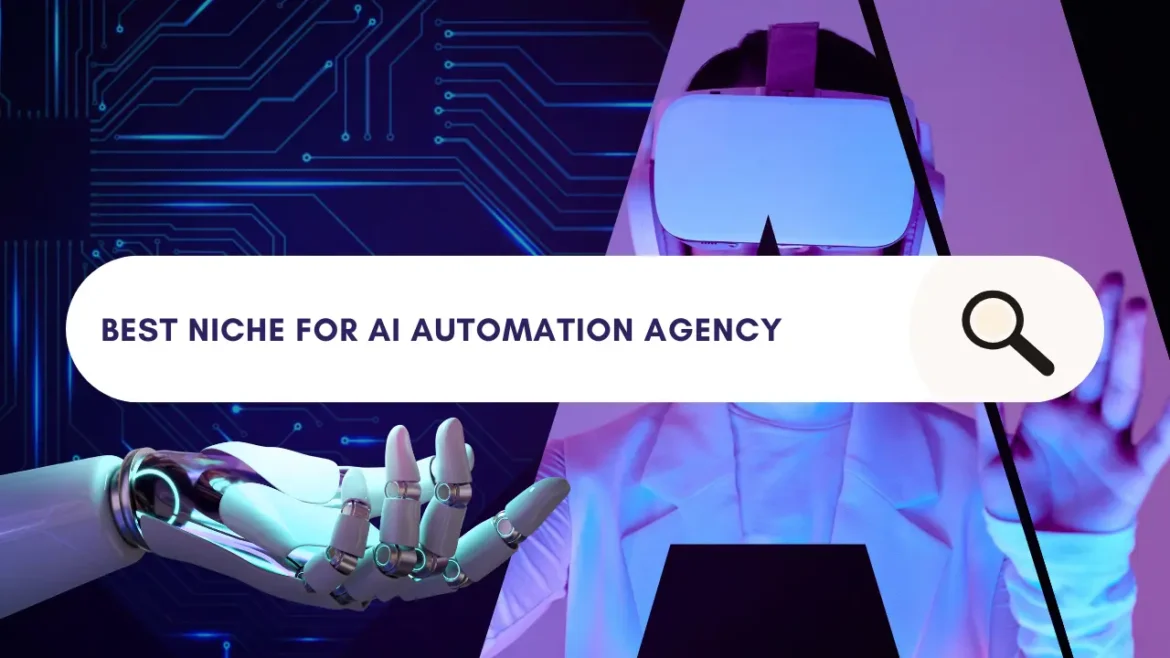How to Build a Team for an AI Automation Agency
https://exploreaitools.com/wp-content/uploads/2024/04/Team-Building-for-AI-Automation-Agency-1024x683.webp 1024 683 Explore AI Tools Explore AI Tools https://exploreaitools.com/wp-content/uploads/2024/04/Team-Building-for-AI-Automation-Agency-1024x683.webpThe team building process for an AI automation agency is quite similar to other software-related businesses. AI automation Agency Team consists of several kinds of skilled persons. To build a successful AI Automation Agency team, there are several key aspects to consider like the team structure, team roles and responsibilities, and the recruitment process. Finding the right person for your AI Automation Agency is very important to make your AI Automation business profitable.
In this article, we’ll cover subjects like; Team Structure, Roles and Responsibilities, and Things to Consider while recruiting someone. And lastly, we’ll see what salaries might be for each kind of role.
In our previous article, we discussed How to build an AI Automation Agency. On that post we tried to show you the process of setting up an AI Automation agency. And as part of the process we have covered this topic, The team-building process for an AI automation agency.
1. Team structure of an. AI Automation Agency
The team structure for an AI automation agency can vary depending on its size and scale. Here’s a general overview of how team structures might differ for small, medium, and large-scale AI automation agencies:
A. Team Small-scale AI Automation Agency:
- Small agencies typically have a lean team structure due to limited resources.
- The team might consist of a few key roles such as:
- Founder/CEO: Responsible for overall strategy and direction.
- AI Engineer/Developer: Develops and implements AI automation solutions.
- Data Scientist: Analyzes data and develops machine learning models.
- Sales/Marketing personnel: Responsible for acquiring clients and promoting services.
- Each team member might wear multiple hats and be involved in various aspects of the business.
B. Team Medium-scale AI Automation Agency:
- Medium-sized agencies have a slightly larger team with more specialized roles.
- In addition to the roles mentioned for small-scale agencies, they might have:
- Project Managers: Coordinate projects and ensure timely delivery.
- UX/UI Designers: Design user interfaces for AI-powered products.
- Quality Assurance/Testers: Ensure the quality and reliability of AI solutions.
- Additional Developers/Engineers: Depending on the complexity of projects and workload.
- There might be more defined departments or teams focusing on different aspects of the business, such as development, sales, and marketing.
C. Team Structure for Large-scale AI Automation Agency:
- Large agencies have a comprehensive and specialized team structure to handle diverse projects and clients.
- Roles in a large-scale agency might include:
- Executive Leadership Team: Includes executives like CEO, COO, CTO, etc., overseeing different aspects of the business.
- Department Heads: Heads of departments such as Engineering, Data Science, Sales, Marketing, HR, etc.
- AI Engineers/Developers: Work in specialized teams focusing on specific technologies or industries.
- Data Scientists/Analysts: Specialized in various domains and applications of AI.
- Sales and Business Development Teams: Consisting of account managers, sales executives, etc., to handle client relationships and business growth.
- Support and Operations: Ensure smooth functioning of projects and client support.
- Research and Development: Engaged in exploring new AI technologies and methodologies.
- Large-scale agencies may also have dedicated teams for compliance, legal, and finance.
2. Roles and Responsibilities of Team Members:
- AI Specialists: Develop and deploy AI systems, identify optimization opportunities, and implement tailored strategies.
- Data Scientists: Analyze data, create predictive models, and provide insights for strategic decision-making.
- Software Developers: Design, develop, and maintain AI-driven software solutions.
- Project Managers: Oversee projects, coordinate with clients, and ensure the successful deployment of AI systems.
- Sales and Marketing Professionals: Promote the agency’s services, generate leads, and build relationships with clients.
- Administrative Staff: Manage the agency’s operations, handle administrative tasks, and support the team’s efforts.
3. Recruitment process for AI Automation Agency:
- Identify the specific skills needed for each role within the agency.
- Utilize online job boards, recruitment agencies, and partnerships with educational institutions to find qualified candidates.
- Consider not only technical skills but also attitude and cultural fit within the agency.
- Implement a thorough hiring process, including interviews and skill assessments, to select the right candidates.
- Encourage continuous learning and provide opportunities for upskilling to keep the team’s skills up to date.
Also, you can check: 10 Most Profitable AI Automation Agency Business Niches
4. Salaries in AI relataed Jobs:
Salaries for roles in AI automation agencies can vary widely depending on factors such as location, experience, company size, and specific responsibilities. Below are rough estimates of annual salaries for each role in the US, based on data from sources like Glassdoor, PayScale, and LinkedIn as of 2023. Keep in mind that these are average figures and actual salaries may vary:
AI Engineer/Developer:
- Entry-level: $70,000 – $100,000
- Mid-level: $100,000 – $150,000
- Senior-level: $150,000 – $200,000+
Data Scientist:
- Entry-level: $80,000 – $110,000
- Mid-level: $110,000 – $150,000
- Senior-level: $150,000 – $200,000+
Project Manager:
- Entry-level: $60,000 – $80,000
- Mid-level: $80,000 – $100,000
- Senior-level: $100,000 – $150,000+
UX/UI Designer:
- Entry-level: $60,000 – $80,000
- Mid-level: $80,000 – $100,000
- Senior-level: $100,000 – $150,000+
Quality Assurance/Tester:
- Entry-level: $50,000 – $70,000
- Mid-level: $70,000 – $90,000
- Senior-level: $90,000 – $120,000+
Please note that these figures are estimates and can vary based on factors such as geographic location, industry demand, company size, and individual qualifications. Salaries may be lower if you find someone from South Asian Countries like India, Philippines etc.
Conclusion:
In this Team-building process for the AI automation agency guide, we try to clear things that matter the most. By focusing on these aspects, you can build a competent and effective AI Automation Agency team. To help your business stay competitive in the technology-driven world.





